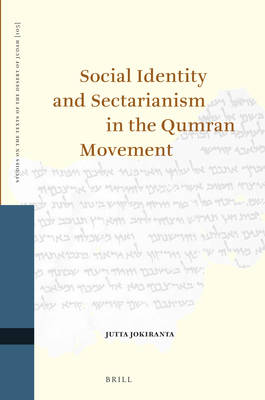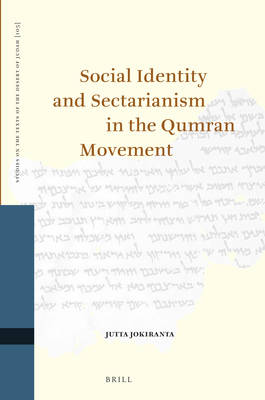
- Afhalen na 1 uur in een winkel met voorraad
- Gratis thuislevering in België vanaf € 30
- Ruim aanbod met 7 miljoen producten
- Afhalen na 1 uur in een winkel met voorraad
- Gratis thuislevering in België vanaf € 30
- Ruim aanbod met 7 miljoen producten
Zoeken
Omschrijving
'Identity' and 'sectarianism', two crucial and frequently used concepts in Qumran studies, are here problematized, appraised, and redefined. Two social-scientific theories inform the investigation of the serakhim (rule documents) and pesharim (commentaries). The sociology of sectarianism is presented in retrospect in order to identify appropriate methodological tools for speaking about sectarianism in the ancient context, and for comparing sectarian stances in the serakhim. Furthermore, a social-psychological perspective into identity is introduced for the first time for appreciating the dynamic and context-dependent nature of a person's social identity. The final chapter takes a fresh approach to the study of the pesharim, arguing for the need to read each Pesher as a whole. It analyses the prototypical 'teacher' and brings forward new interpretations of this captivating and cloudy figure.
Specificaties
Betrokkenen
- Auteur(s):
- Uitgeverij:
Inhoud
- Aantal bladzijden:
- 272
- Taal:
- Engels
- Reeks:
- Reeksnummer:
- nr. 105
Eigenschappen
- Productcode (EAN):
- 9789004238619
- Verschijningsdatum:
- 7/12/2012
- Uitvoering:
- Hardcover
- Formaat:
- Genaaid
- Afmetingen:
- 163 mm x 239 mm
- Gewicht:
- 612 g

Alleen bij Standaard Boekhandel
+ 509 punten op je klantenkaart van Standaard Boekhandel
Beoordelingen
We publiceren alleen reviews die voldoen aan de voorwaarden voor reviews. Bekijk onze voorwaarden voor reviews.








